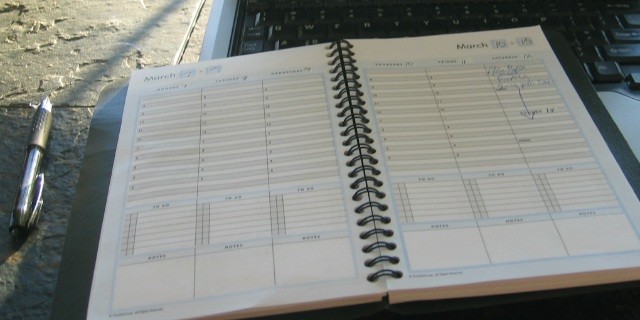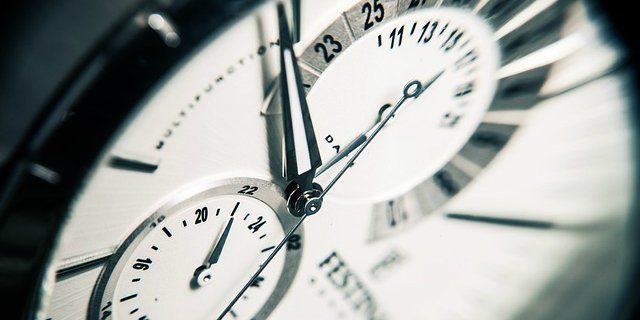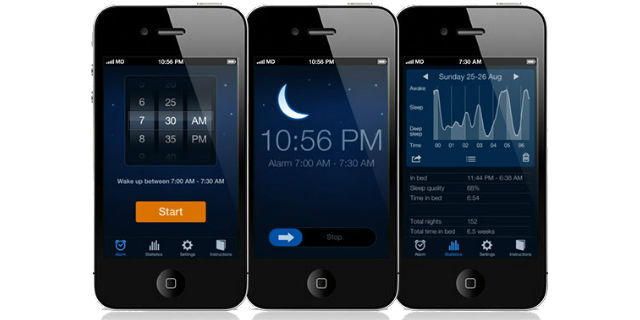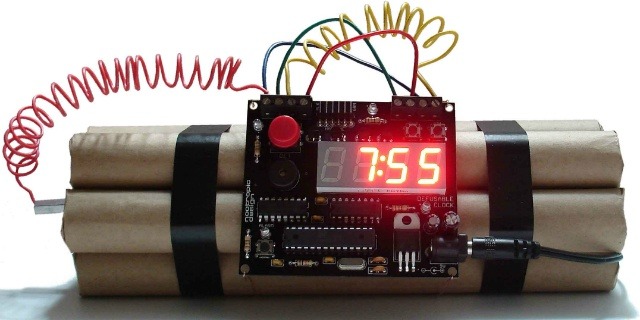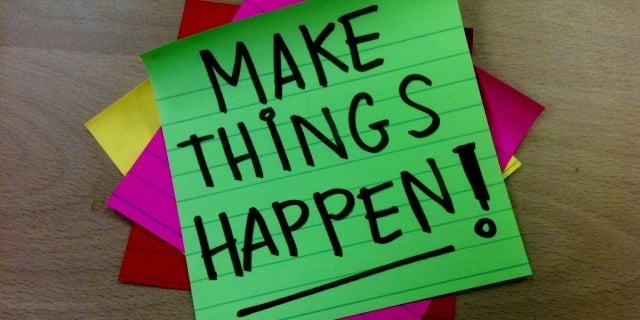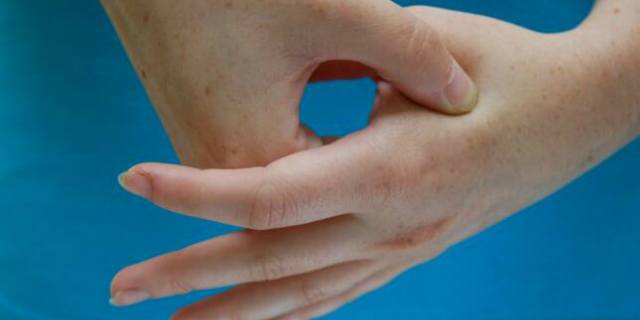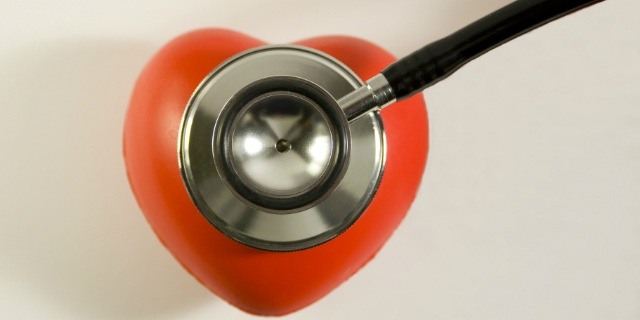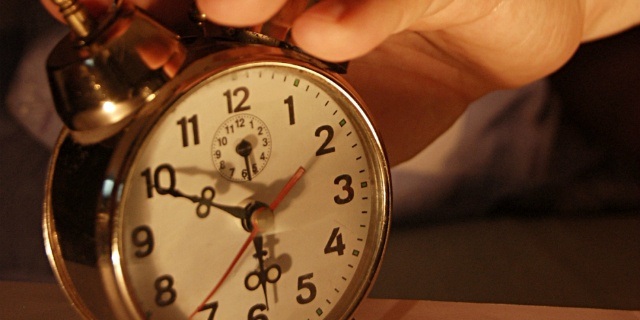Rising early does have real benefits that make it a worthwhile goal, like improving your chances of getting a workout in, putting you in a better mood, encouraging healthier eating and improved proactivity. As a lifelong night owl, I know the struggle of trying to wake up and slog through the day on an early bird’s schedule. In my attempts to improve sleep habits and get better rest, I researched and found several tricks that truly made going to sleep and waking up in the morning easier. Read on to learn 15 useful strategies for waking up earlier that I wish I had known years ago!
1. Plan your schedule to allow adequate time for sleep.
The average adult needs a minimum of seven hours (and up to nine hours) of sleep every night. The first trick to waking up earlier, is to make sure your bedtime allows you to get enough rest in every night without stressing over the clock or feeling fatigued the next day. If you want to wake up at 6:00am, for example, then your bedtime needs to be no later than 10:30pm. Remember it takes an average of 10-20 minutes to fall asleep, and you also need to factor in time for evening pre-bed routines as well.
2. Gradually adjust your bedtime.
Move your bedtime and wake time in gradual, 15-minute increments to reduce shock to your system and daytime fatigue. Trying to change your schedule by an hour or more right away is a surefire way to feel tired and give up. If you want to wake up an hour earlier, give yourself at least 4 days to make the transition, getting to bed 15 minutes earlier and setting your alarm clock 15 minutes earlier each day. You can spend a few days at each increment if that works better for you, too.
3. Optimize your bedroom for more efficient sleep.
For many nightowls, the biggest struggle is falling asleep early enough at night. Your bedroom plays a big role in this, so make sure you are setting the stage for the best sleep possible. Temperatures should be cool, between 60 and 70 degrees Fahrenheit, your mattress and bedding should be cozy and comfortable, and your space should be clean and free of clutter. Light should be kept to an absolute minimum as it can impair your melatonin production, as should distracting sounds. Light blocking shades or an eye mask as well as a sound conditioner or ear plugs can be helpful if you have limited control over the environment.
4. Use visualization to fall asleep faster.
Another helpful trick for falling asleep faster is to use visualization to clear your mind and relax. One study from Oxford researchers found visualization more effective than counting or simply laying down. To do this, imagine a relaxing, calming scene and try to experience it in as much detail as possible with all of your senses. You might be walking down a beach at sunset or strolling through a calm forest. If your thoughts start to wonder, come back to your scene. There are also guided visualization apps and YouTube videos that can help you stay focused and practice this technique.
5. Use a sleep cycle monitor or app to wake up fresher.
(Image from SleepCycle.com) Smartphone sleep cycle apps or sleep monitoring devices can be helpful for avoiding groggy mornings and for tracking your habits. When you wake up in an REM sleep cycle, it could take several minutes to recover from the groggy and foggy sleep state. These apps and devices aim to work by monitoring your sleep cycles and waking you at point that is most likely to have you feeling awake and well-rested (within a specified timeframe). The other, and perhaps more useful, aspect of tracking your sleep is that you can see what disturbs your slumber versus which habits help you sleep better and deeper.
6. Booby trap your alarm clock.
(Image from NootropicDesign.com) For those of us who have developed stealth alarm snooze skills, you may need to get a little creative with your alarm clock until your body is more used to waking up early. You can start by placing your alarm far enough away from your bed that you have to get up and move, taping over or covering up the snooze button, or otherwise creating an obstacle that prevents you from slipping back off to bed. Another solution could be to try creative alarm apps that require you to perform complex tasks before shutting off.
7. Remember why you are waking up early, positively.
(Image from psu.edu blog) If motivation to get out of bed is your weakness, then create reminders for yourself about why you want to achieve this goal or positive affirmations to encourage you. On smartphones, you could name your alert to match your motivation, such as: “Fit into skinny jeans!”, “Increase sales 20%!”, “Get an A+!”, or “Today is a special day!” or leave positive sticky notes on your alarm, pillow, or bathroom mirror.
8. Utilize acupressure to wake up.
One study from University of Michigan researchers found that basic acupressure techniques helped boost alertness. These simple techniques take only a couple of minutes, and can even be done in bed or whenever you need a boost during the day. Stimulation points for alertness include the top of your head, top of the back of your neck, back of your hand between your thumb and index finger, right below your knees, and the center of the bottom of your foot.
9. Turbo-charge your morning routine.
Get going quicker after you wake up by incorporating water, light, activity and healthy food into your morning routine. Start your morning with a big glass of cold water (some people also swear by warm water with lemon) to recover from nighttime dehydration. Try to expose yourself to natural sunlight as soon as possible to support your natural wakefulness rhythms. A little energy-boosting aromatherapy can also help. If you are a coffee drinker, put a pot on and enjoy the aroma. Other good wakeup scents include orange, lemon, rosemary, and mint. Next, try to do a little exercise, even if it’s only a couple minutes of light yoga or jumping jacks – just to get your blood pumping and energy flowing. Don’t forget to eat a healthy breakfast early as well to support your metabolism and energy levels through lunch.
10. Incorporate a nap into your afternoon.
If waking up earlier has you feeling sluggish in the afternoon, a short afternoon nap can refresh your energy levels and give you a second wind. Shorter naps are best for boosting alertness without causing grogginess or impacting your nighttime sleep. Studies say naps between 10 and 20 minutes are best, just make sure to keep them around 8 hours before your planned bedtime.
11. Watch what you eat and drink after noon.
Certain foods, supplements and drinks can steal sleep by stimulating energy or causing indigestion. Caffeine and other stimulants can affect you for several hours, so when trying to fall asleep early or adjust your schedule, it can be helpful to avoid them or at least limit them to morning hours. Coffee, caffeinated tea, dark chocolate, sugar, guarana and diet/slimming supplements are all things to watch out for. Spicy, greasy or heavy foods to close to bed are also bad for Zzz’s.
12. Banish electronics before bed.
Another less obvious stimulant is light, particularly blue light that televisions, computers and other electronics emit. Light exposure at night can impair natural melatonin production, delaying drowsiness and keeping you up later at night. Try to detach from your devices at least 60 minutes before bed – that means no smart phones, laptops, tablets, televisions and keeping room lights dim as well. Instead, try reading, listening to music or an audiobook, writing in a journal, a warm bath or relaxing stretching to wind down your evening.
13. Make your mornings stress-free and simple.
Does the thought of everything you need to do make you want to hide under the covers? Try getting motivated to wake up by paring down your morning routine and giving yourself something to look forward to. You could lay out your outfit and get all of your things together at night, have quick and healthy breakfasts and lunches ready to go, set the coffee pot on auto-timer, and look for other ways to do your less enticing activities at night so mornings are smooth sailing.
14. Address any potential snooze-stealing issues.
If you’ve tried all of the trusted tricks for improving sleep habits but still find yourself feeling tired or have persistent sleep troubles, it might be worthwhile to chat with your doctor. Certain medications, allergies, or other treatable conditions could be at the root of your sleep problems. Sleep apnea is a major one to be aware of, especially if you are a heavy snorer or wake feeling tired despite spending enough time sleeping.
15. Keep your sleep-wake schedule as consistent as possible.
And, saving the best for last, one of the most effective ways to get comfortable with waking up earlier is to stick to a consistent schedule, even on the weekends. In addition to potential healthy weight benefits, a consistent sleep wake schedule means your body knows what to expect and reduces the likelihood of sleep problems. Set a sleep and wake time you can stick to every day of the week, aiming for no more than an hour of variation for the best results. Share: What sleep tricks or changes help you fall asleep faster or wake up earlier?
